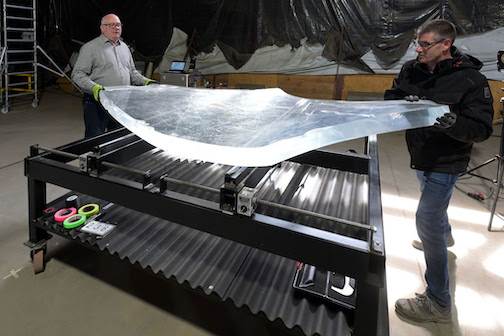Mia Bucher, dpa I Sunday, May 7, 2023
BERLIN – The massive cylindrical sea life aquarium that burst in Berlin last year won’t be replaced, the building’s management said.
During the accident around 1,500 exotic fish, 1 million litres of water and hundreds of debris fragments were spilled into the lobby of the Radisson Blu hotel in the German capital.
“Even without knowing the causes of the AquaDom’s bursting, we are ruling out a new large aquarium for the location,” Fabian Hellbusch, spokesman for the building’s owner, told dpa, saying the cost was prohibitively high. He said the tank had been a “visitor magnet.”
“We are currently examining a number of alternative, economically viable concepts,” he said. A decision is expected by the middle of the year.
The 16-metre-high AquaDom aquarium in the hotel near central Berlin’s Alexanderplatz square ruptured in the early hours of December 16. The hotel lobby was flooded and water and fish streamed into the street.
Two people were slightly injured. At least six other shops in the building complex were damaged in the disaster that made international headlines.
The tank was described as the largest free-standing cylindrical aquarium in the world.
The hotel is still closed and will not open again this year, said Hellbusch, of Union Investment Real Estate. This was due in part to the elevators being badly damaged, he said. A redesign of the hotel lobby is also in the works.
The cause of the explosion is still unclear, with speculation ranging from material fatigue to small cracks on the surface or even temperature fluctuations.For several months, a team of experts has been examining the more than 700 fragments for clues, the largest of which weighs nine tons.
The investigation should be completed by mid-July, but the team has already cautioned that the cause may not be clearly established. There is one piece of positive news: of the approximately 630 fish that could be rescued after the breach, almost all survived. They have gone to breeding tanks, private aquarists and the Berlin Zoo.

